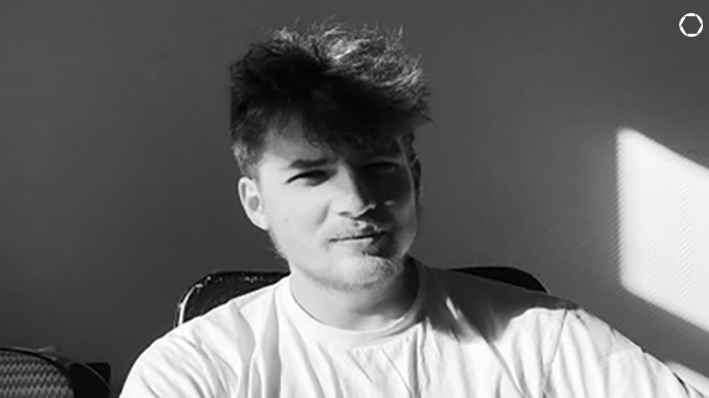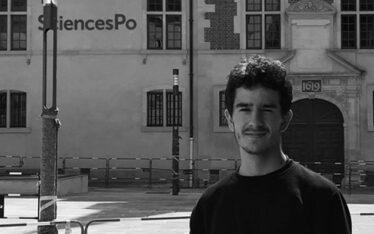
courtesy of J. Reigneaud
Jules Reigneaud grew up in Dijon and now lives in Moulin. He is a second-year student at Sciences Po in Reims.
How does France treat sexual assault accusations?
France has gone in a good direction in past years. Many movements have legitimized the speech of victims and expanded the people’s understanding of sexual assaults. Thanks to social medias and feminist associations, conjugal rapes and incest, for example, are matters that are now heard.
However, this is not an unanimous stream as institutions are late compared to social understanding of accusations. Police and justice, in my view, did not change practices and still lack in their work of arresting rapists and protecting victims.
POLITICAL USE OF RAPE
There is also a political use of rapes: some right parties will talk about protecting the victims in rare occasions, and mostly when the case concerns people of color and immigrants.
It is then an argument for xenophobic policies, and for me only a proxy as political leaders do not really care about the rape issue but more about their agenda.
On a personal level, I have witnessed cases where the victim does not testify because she does not believe in the efficiency of the police and judges.
will victims testify?
I also went to see the [Sciences Po, Campus of Reims Director] to talk about that type of issue. The answers were that the Sciences Po institution has no complaints. The issue he encounters usually is that victims do not want to testify.
This, I believe, is completely out of touch with what is happening.
Have movements such as #metoo and #BalanceTonPorc in France triggered the same shock and wave of consequential action as in the States?
BalanceTonPorc has been a great initiative, as people who benefited from the former system of omerta got called out publicly. When justice is not efficient at a task, especially when it is as serious as that, social corpses must take over and be charged with making problematic people scared.
“La peur a changé de camp” is what impressed me the most and I think it is the greatest achievement of that movement, since new laws and governmental actions have been going in the good direction, but way too slow.
Given this, do you think the conversation surrounding sexual assault is unique to France (culture + society) or there are not specific distinctions to be drawn in comparison to other “Western” countries?
The dynamic is the same in all Western societies.
SHAPING SOCIAL VIEW
France, however, has a large population. This makes it able to have its own social media and press. That, for sure, makes France’s situation unique as some affairs will shape the social view about aggressions.
The Dominique Strauss-Kahn rape allegations, in my understanding, pre-launched Metoo. When Metoo arrived in France, there were pre-conditions on the understanding of rape thanks to this case.
FOR LEGAL SANCTIONS
In 2011, crowds of women gathered in front of the courts to tell DSK they supported his victims. The movement, nowadays as it is, is an attempt to substitute the legal sanction for a social sanction. That is way more efficient.
Do you believe consequences in the French legal system severe enough for the varieties of sexual assault accusations that’ve recently come up (incest, rape)?
I consider it is very insufficient. In the texts, rape is considered as a severe crime and is punished.
However, in practice, there are a lot of obstacles to making rapists go to jail. First, one must go through the police. If the police actually investigate and send the case to court, there are a lot of people who are released for lack of proof despite evidence.
bartering for sex
Current Interior Minister Gérald Darmanin, for example, in 2009, as a lawyer had sex with a mother of a kid in exchange for getting her a suspended sentence.
French law says the constraint is a sufficient motive to qualify the act as a rape.
PRIVILEGE OF POWER
Darmanin did not deny what happened, but he did not get charged and now as Interior Minister oversees the police. The case is currently being appealed. An unnamed woman also accuses him of asking for sex in exchange for finding her social housing, which Darmanin denies.
Do these increasing testimonies over the past couple years/ months reflect a reality of victims’ voices getting louder? could we say there is an evident change in how France goes about the conversation?
There is both an increase in the testimonies and which reflects the victims’ voices getting louder.
ease of testifying
It is easier to testify if there are structures to regroup victims of the same person or the same institution. It is also easier to testify if society hears you and does not laugh at your statements.
There certainly is an evident change in the conversation. It’s a good thing. But it should keep going. We still are far from being in a satisfying situation.
How do you envision a change if there need be in how the country navigates the conversation? (both in personal level as well as legally speaking).
It has to be said that the direction is good. This is even though it might show horrible things such as the Science Porcs scandal.
hearing more from people
Hiding things always falls back on the people who did. Also, we should hear more from people who have relevant things to say on the subject.
Institutional progress clearly cannot be made if there are individuals benefiting from the current laxism towards rape in the government and powerful organizations.
About the Article
Reflections of a French college sophomore on his personal conclusions attending university in France.



